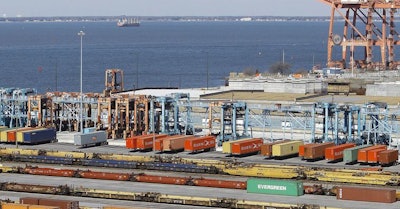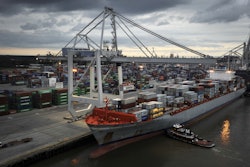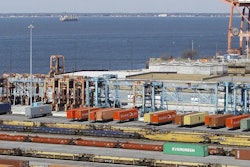
The federal government gave its approval to an innovative agreement that allows the Georgia Ports Authority (GPA) and the Virginia Port Authority (VPA) to begin discussing ways the two ports can share information in certain operational areas to position themselves as the U.S. East Coast’s leading gateways for containerized cargo.
A joint application to proceed with development of the East Coast Gateway Terminal Agreement was filed by the ports February 24. The application set into motion a 45-day review period—including a 12-day public comment period—by the Federal Maritime Commission (FMC). The approved agreement encourages the exchange of information and best practices in five areas of operational and supply chain efficiencies, safety, communications and customer service. The five areas include:
- Cargo handling practices and terms, gate operations and access, turn-times, staffing and infrastructure.
- Joint or independent acquisition, utilization and best practices relating to operating systems and equipment, including metrics relating to the repair and use chassis and containers.
- Joint or independent acquisition and use of marketing materials for ocean carriers, alliances, shippers, beneficial cargo owners (BCOs) and ocean transport intermediaries.
- Commercial opportunities regarding carriers.
- Acting as one: The GPA and VPA can meet and exchange operational information and performance criteria with carriers, shippers and other marine terminal operators.
Conversely, the agreement:
- Does not cover discussions regarding purchase or lease prices for containers or chassis.
- Prohibits the ports from entering into agreements on rates, charges, terms or conditions on containers or chassis without filing an agreement with the FMC.
- Requires that joint discussions that lead to an agreement under the Shipping Act must be filed with the FMC.

















